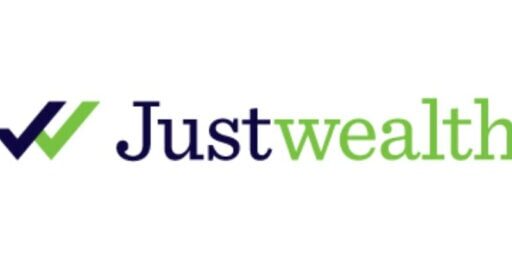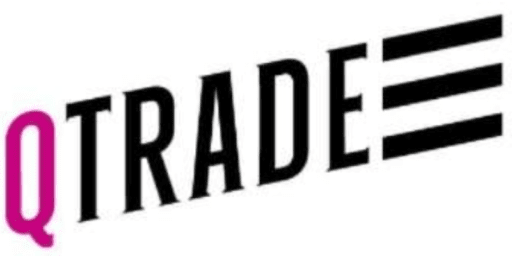Selling a Business to Retire in Canada
I’ve been on a real small business/CCPC kick here at MDJ over the last month, and my end goal was always to get to a place where we could make an informed decision on how to best sell a business before we retire – or create an alternative exit plan for our retirement.
But as I said when we first started this journey – it’s hard to jump in mid-stream when it comes to corporation stuff.
For us to really understand the best options for selling a Canadian company, we have to really know how taxes work on dividends, salary, passive income, operating income, how the small business tax deductions work, income splitting options, and several other variables.
So to that end, make sure that you don’t miss out on the following articles:
- Investing Inside Your Canadian Corporation
- Salary vs Dividends – Paying Yourself for CCPC Owners
- CCPC Taxes: Pay Less Tax for Canadian Small Business Owners
- Canada’s New Capital Gains Tax Rules
Quick Reminder: When we say “small business” in this context, we’re referring to a Canadian Controlled Private Corporation (CCPC) here. If you sell a sole proprietorship and/or a partnership you should pay particular attention to the “asset sale” section below, as that is essentially the default option for you (as there is no “share sale” option available).
Corporation Share Sale vs Asset Sale
Before we can understand what the final tax bill will be for selling a small business we need to know the difference between a share sale and an asset sale.
These are the two main ways that most small business owners sell their company and there are some substantial differences between them.
Asset Sale: Your company is made up of assets. You might have tangible assets like buildings, land, and machinery. You might also have intangible assets like goodwill or intellectual property. An asset sale means that another person or company is buying some or all of these assets from your corporation. You will still own the shares of the original corporation at the end of the asset sale.
Share Sale: You actually sell the shares of your corporation to another person or company. At the end of the transaction you no longer own the legal entity that was your company.
To make matters even more confusing, buyers generally prefer to buy assets as opposed to shares, whereas sellers (especially if this is the only company they are ever likely to sell) prefer to sell the company’s shares.
The reasons behind these preferences have to do with legal liability and taxes. We’ll cover taxes in a second, but in terms of liability, when an entity (a person or another company) purchases the shares of a corporation, they assume all known and unknown liabilities of that corporation. In other words – what they don’t know might come back to bite them.
There are legal remedies to this such as a clause in the purchase agreement to avoid responsibility for pre-purchase liabilities, plus the seller being asked to provide warranties, indemnities, and personal guarantees for years after the company is sold.
For most buyers and sellers, this liability will never come into play – but obviously there are significant legal risks in a worst-case scenario and consequently, a lawyer experienced in this specific niche can be a big help.
Tax Considerations of Selling a Business in Canada
There can be quite a big difference in the amount of tax you have to pay when you sell your business depending on if it is a share sale or an asset sale. Generally speaking, a share sale will result in a lower tax hit to the seller, and consequently, if the buyer is dead-set on asset sale, the seller will usually ask for a higher price (so that they come close to putting a similar amount of money in their pocket after taxes are considered).
When your business’s assets are sold, the profit that is made over and above the cost of your assets will be accrued by your business as a capital gain. If your business is a sole proprietorship or partnership, those capital gains will be added right to your annual tax return. They will be taxed at a personal tax rate of 0% to 27% and would be subject to the new capital gains tax laws.
If your business is a Canadian corporation, then the company would owe corporate taxes on the capital gains of that asset sale, and then there would be another layer of taxation when you moved the money from your corporation over to your personal accounts.
In most cases, if a CCPC owner sells the assets of their business, they will no longer be producing operating income (how can you have operating income if you have no more assets right?) and so the money cannot be paid out via salary – it will usually be paid out via non-eligible dividends. See our article on salary vs dividends in a Canadian corporation for more information on the specific tax rates involved there.
It’s impossible to say what your final tax rate will be on a share sale because your business is going to pay corporate tax on the now-higher capital gains inclusion tax rate of 66.7% – but then once the post-tax profits are sitting in your corporation, you’ll be able to pay some of the money out as a Capital Dividend – and the rest you can take out in the years to come – whenever it is convenient from a tax perspective. Of course, then we get into the rules around investing within a corporation to consider as well.
If you want access to the money from your share sale sooner rather than later, then you’ll likely pay a high personal tax rate, as you’ll essentially be declaring a large non-eligible dividend for one specific tax year. That will result in a large part of the money being taxed in the highest tax brackets. Alternatively, you could take the money out over several years and be a bit more strategic about minimizing taxes.
Now a share sale is a comparatively simple and advantageous deal for the seller. You sell your shares – and it’s quite possible that you will owe no tax at all if you are able to use the Lifetime Capital Gains Exemption (details below). If you have already used your LCGE or opt not to use it for some reason, then you would have to pay the personal tax rate on the capital gains from the share sale.
Lifetime Capital Gains Exemption for Small Business Owners
The Lifetime Capital Gains Exemption (LCGE) was actually in the news recently, as the federal government’s proposed budget actually proposed to boost this tax credit quite substantially – to $1.25 million.
For many households, this means that if you and your spouse each own shares in your small business (as well as any other shareholders for that matter) – then you would each benefit from your own LCGE (effectively giving couples a $2.5 million LCGE when they sell their first small business).
In order to be eligible for the LCGE your company must be a Qualified Small Business Corporation (or a qualified farm or fishing property). As long as you have a CCPC in which 90%+ of the assets are used in an active business that is carried on in Canada, you should be in the clear. In order to use your LGCE you must have owned your shares for at least two years prior to the date of the sale.
When Should I Create My Exit Plan for Retirement?
In talking to several financial planners and reading up on the details of selling your company, I cannot emphasize enough how important it is that small business owners create an exit plan well in advance of the day they want to step away.
If you wait for an offer to come out of the blue before you look at the details of selling a small business, then you’re creating an anxious pressure-packed experience for yourself. Not an ideal place to be when making what could be the biggest financial transaction of your life.
It can be hard to wrap your head around the details of how capital gains are treated on an asset like accounts receivable or how the Alternative Minimum Tax (AMT) considerations may affect your specific tax situation in the year you sell your company.
Working with a fee-only financial planner to understand the best way possible to sell a business to fund your retirement is likely to be well worth your time and money. The fee-only planner won’t try to sell you any products you don’t need, and should have experience in similar corporation-sale scenarios.
The Canadian Federation of Independent Business did a survey a couple of years ago, and while 76% of small business owners were planning to leave their business as they retired (or earlier), only 9% had an exit plan in place. Those aren’t great odds!
Alternative Small Business Owner Retirement Strategies
Now, it’s actually possible that the best move for you might be to not sell the corporation at all.
I’ve talked to owners of many different types of businesses over the years, and after sitting down with a planner and looking at various share sale vs asset sale scenarios – as well as how to best handle the profits from a corporate sale – they decided to just keep the business operating, but take a step back.
After all, there is nothing stopping you from hiring someone to take over the majority (if not all) of the management duties – and still pay yourself a healthy salary each year. Maybe some combination of scaling down, gradually selling off some assets, and stepping back makes the most sense?
Another unique option for small business owners to consider is an Employee Share Ownership Plan (ESOP) – which can be an interesting “gradual sale” solution.
Finally, if you intend to sell your corporation to your children in order for them to take over (or leave it to them to inherit) this will require even more in-depth planning in order to minimize taxes on both sides of the equation.
What Does It Look Like After I Sell My Business and Retire?
Every corporation is unique, and is owned by people with unique personal finance considerations outside of the corporation. Depending on other income sources, family status, income needs, and many other variables, it’s hard to say exactly what the optimum retirement plan for your business sale might be.
Depending on whether you sell your corporation through a share sale or an asset sale, how you should optimally handle the proceeds of selling your business changes a bit.
If instead you gradually wind down the corporation and/or sell your business through an asset sale, you’ll eventually end up at a place where you’re no longer earning operating income. At this point your corporation basically becomes an investment holding company (aka: “holdco” or “hoco”).
If your corporation’s assets are relatively modest, the ongoing accounting and legal fees might mean that it’s more advantageous to withdraw the proceeds of the sale and close the company. However, if there is a relatively large amount of money or investments still in the corporation, then investing within the corporation and withdrawing money throughout your retirement is likely the way to go.
If the proceeds from your asset sale are fairly modest, then it might make sense to wind down the company simply to avoid the bookkeeping and tax preparation costs that the corporation will incur each year. (As well as just keeping life more simple).
Obviously if you complete a share sale, get $1.25 million in tax-free cash, and invest it on your own, then you should check out my article on how to withdraw from your RRSP and TFSA and other accounts in retirement. If you are investing within a corporation, paying yourself (and perhaps a spouse) through non-eligible dividends, and balancing out withdrawals from your registered accounts – then financial planning advice becomes even more valuable, as there are many different tax considerations to account for.
Remember, you’re not just trying to optimize lower taxes for a single year – but for the rest of your life (and maybe even maximizing your estate taxation upon death as well). Consequently, concepts such as estate freezes, CPP and OAS deferment, and the new capital gains tax laws all have important parts to play in putting the most after-tax money in your pocket over the long term.









